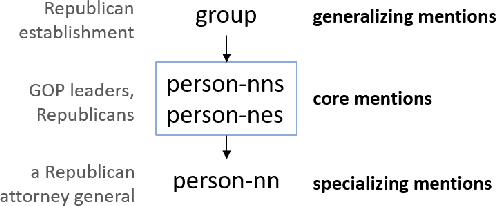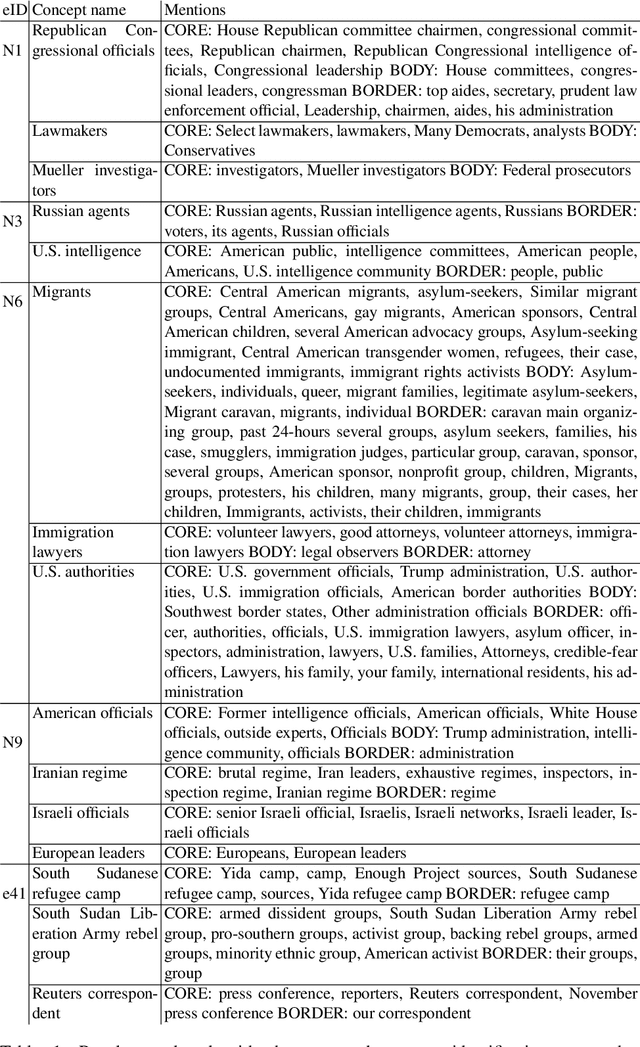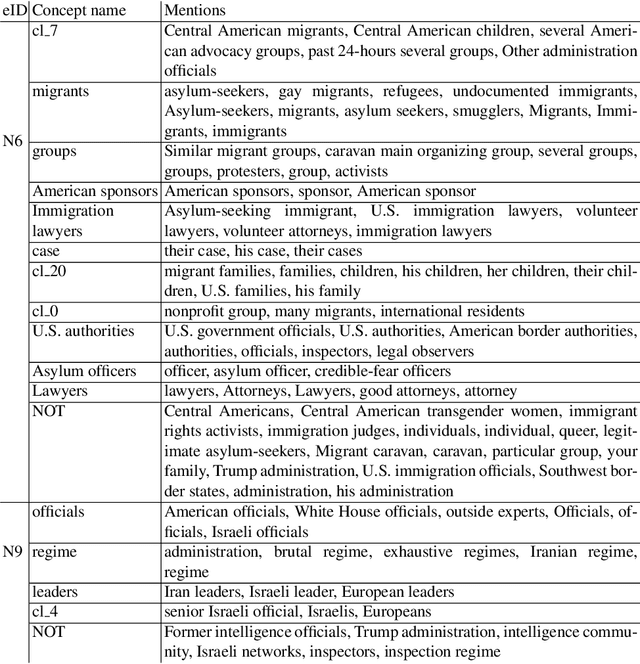Concept Identification of Directly and Indirectly Related Mentions Referring to Groups of Persons
Paper and Code
Jul 02, 2021



Unsupervised concept identification through clustering, i.e., identification of semantically related words and phrases, is a common approach to identify contextual primitives employed in various use cases, e.g., text dimension reduction, i.e., replace words with the concepts to reduce the vocabulary size, summarization, and named entity resolution. We demonstrate the first results of an unsupervised approach for the identification of groups of persons as actors extracted from a set of related articles. Specifically, the approach clusters mentions of groups of persons that act as non-named entity actors in the texts, e.g., "migrant families" = "asylum-seekers." Compared to our baseline, the approach keeps the mentions of the geopolitical entities separated, e.g., "Iran leaders" != "European leaders," and clusters (in)directly related mentions with diverse wording, e.g., "American officials" = "Trump Administration."
 Add to Chrome
Add to Chrome Add to Firefox
Add to Firefox Add to Edge
Add to Edge